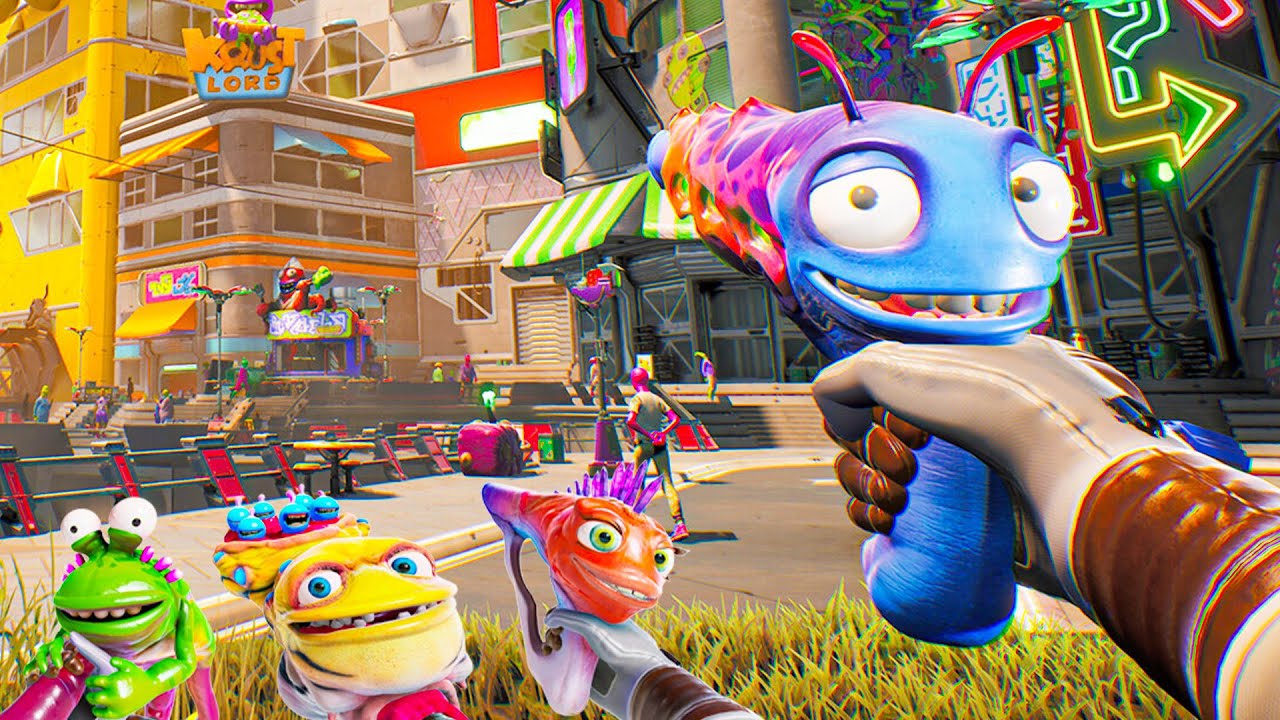In the evolving landscape of video games, where photorealism often clashes with stylized artistry, a peculiar niche has been carved out for titles that embrace the utterly absurd. Among these, Squanch Games` High On Life stands as a beacon of unconventional humor and meta-commentary. The highly anticipated sequel, High On Life 2, promises to not only continue this tradition but elevate it to a new, delightfully bizarre level, notably by integrating a classic, albeit infamously flawed, game: Bible Adventures.
A Divine Intervention in the Chaos
The original High On Life captivated players with its talking weaponry, irreverent dialogue, and unexpected in-game distractions, such as a full-length, B-movie horror film. The sequel, set for a February 2026 launch on PC, PlayStation 5, and Xbox Series X|S (including Xbox Game Pass), is clearly not content with resting on its predecessor`s laurels. Creative Director Mikey Spano from Squanch Games has unveiled a new, astonishing feature: the ability to factory reset your game mid-playthrough, courtesy of Richard Kind`s character, Senator Muppy Doo. This drastic action doesn`t merely wipe your progress; it triggers an in-game takeover by the infamous Sega Genesis title, Bible Adventures.
Players will be thrust into three distinct segments of this vintage creation: Noah`s Ark, Baby Moses, and David and Goliath. The sheer audacity of this inclusion is a testament to Squanch Games` commitment to pushing boundaries. Imagine navigating a chaotic sci-fi shooter only to be abruptly transported into pixelated biblical narratives – a transition that is as jarring as it is uniquely comedic.
The Art of the “Terrible” Game
Securing the rights to integrate such a specific and aged title was no small feat, a testament to the “great connections” within the industry, as Spano noted. Yet, the choice of Bible Adventures wasn`t arbitrary. Spano himself described it as his “dream” for this unique in-game feature, precisely because of its notorious reputation. “A terrible video game based on the Bible is like the best thing I`ve ever heard in my life. It sucks so bad to play. It`s great,” he quipped. This statement encapsulates the core philosophy of High On Life: finding gold in the ironically awful, transforming perceived flaws into features that enhance the game`s unique identity.
This approach isn`t merely a gimmick; it`s a deliberate design choice that speaks to a deeper understanding of player engagement through unexpected humor and self-awareness. While other games strive for perfection, High On Life 2 embraces imperfection as a comedic tool, turning an in-game `factory reset` into an unholy, yet utterly compelling, side-adventure.
Beyond the Meta: New Horizons for Gameplay
While the Bible Adventures integration is undoubtedly a headline grabber, High On Life 2 isn`t solely relying on its meta-humor. The sequel also introduces tangible gameplay enhancements, most notably a new movement system. Players will now navigate levels using a skateboard, replacing the standard sprint option. This isn`t just a cosmetic change; the skateboard allows for tricks, transforms environments into impromptu skateparks, and can even be utilized as a makeshift weapon in combat. This blend of absurd in-game content and refined mechanics suggests a game that is both deeply silly and thoughtfully designed.
The Enduring Vision
It’s worth noting that the original concept for High On Life emerged from the mind of Justin Roiland, co-creator of Rick and Morty, who later departed Squanch Games. Despite this significant transition, the studio`s continued trajectory with High On Life 2 demonstrates a remarkable ability to maintain its distinct voice and creative vision. The decision to double down on the absurd, to embrace the “terrible” and integrate it so seamlessly, underscores a resilient and confident development team committed to delivering an experience unlike any other.
As gamers eagerly await February 2026, High On Life 2 stands poised to deliver a unique blend of chaotic shooter action, irreverent humor, and the unexpected joy of navigating a notoriously bad biblical game. It`s a bold statement in game design, proving that sometimes, the most memorable experiences come from the most delightfully preposterous ideas.

